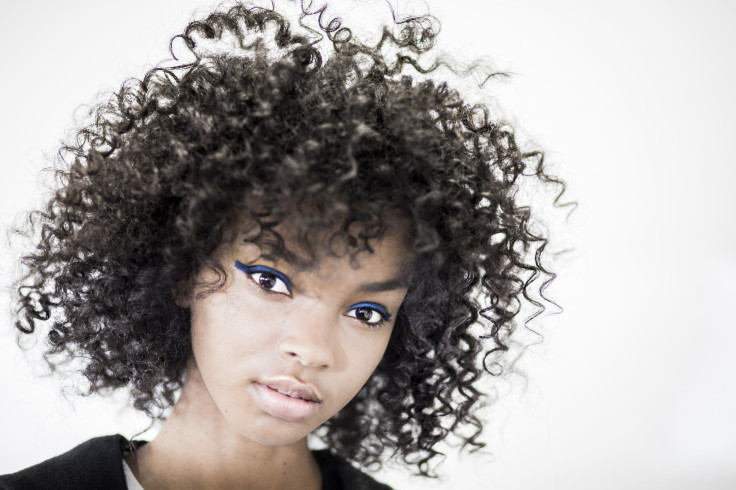What Is The Black Hair Challenge? How Black Hair Care Has Turned Into A Multi-Million Dollar Industry

While the term “black hair” might mean anyone who possesses black-colored hair, natural or artificially treated, irrespective of one’s, the “Black Hair Challenge” is strictly meant for people with African American origin. #BlackHairChallenge was trending on Twitter, Saturday 4:18 a.m. EDT, where black people from all over the world proudly posted pictures of their hair.
African American men and women participated in the challenge, which quickly gathered up momentum, becoming one of the top trends on social media, with 44.5K tweets and counting.
People with all kinds of hair – long, short, straight, curly and otherwise – posted selfies, with innovative captions, on Twitter. While some hairstyles were fairly classic such as cornrows, others went a step beyond merely “odd.”
#BlackHairChallenge whether it's straight, curly, or protected. My hair is my crown. I love itttt ❤️✨👸🏽 pic.twitter.com/gC321OmjkK
— 𝕐𝕆𝕌ℝ 𝕄𝕖𝕟𝕥𝕒𝕝 ℍ𝕖𝕒𝕝𝕥𝕙 𝔸𝕕𝕧𝕠𝕔𝕒𝕥𝕖✨ (@SiaraDanyale) May 27, 2017
#blackhairchallenge ✊🏾👸🏾 pic.twitter.com/mYqh247Euu
— #BLM #EndSARS (@sista_soulja___) May 27, 2017
#blackhairchallenge love what God has given you...Embrace it..Take care of it and watch nature grow! 😎🙌🏽 pic.twitter.com/EiJ88yBRR6
— 🇯🇲Jay Gemini🇱🇦 (@foreignGem_Jay) May 27, 2017
While most people flaunted their glossy black hair, people who did not sport black hair also participated in the challenge.
#blackhairchallenge So grateful for my hair pic.twitter.com/uNPJ59C7tP
— Jasmine Merriweather (@jas1109stare) May 27, 2017
#Blackhairchallenge hope I didn't miss the party. 🤷🏽♀️ pic.twitter.com/VpH6PIC5ce
— Judy B. 💙🏁 (@QueenBee______) May 27, 2017
Twitter users also used this challenge as a throwback to their good old childhood days when they did not have to worry about the latest hair trend or spend all day browsing the internet for ways to get rid of their frizz.
#blackhairchallenge pic.twitter.com/IreFR7lthP
— PattyChocolateMilk (@PattyChocMilk) May 27, 2017
#blackhairchallenge pic.twitter.com/bqyvUuXgVa
— PattyChocolateMilk (@PattyChocMilk) May 27, 2017
Speaking of frizz, the unprecedented popularity of African American hair care has led it to become a multi-million dollar industry in the last few years.
In fact, as it turns out, research has shown that black people spend six times more on hair care than white people do, Huffington Post reported. South Africa alone accounts for $450 million worth of profits from selling black hair products, with L'Oréal leading the list of preferred hair car companies.
On the other hand, the movement to go natural and retain their “Afro-textured hair” is making comeback in the United States, which caused sales of chemical-infused black hair care products to record a 19 percent drop between 2013 and 2015.
"The natural hair movement is part of a rising global wellness consciousness," says Taryn Gill, founder of local hair care product line The Perfect Hair. "We're eating organically [and] are more conscious about the ingredients in our skin and hair care products."
Read: Michelle Obama 'Always Embraced Her Natural Hair' Says Stylist
Many people have rebuked the fact that while the natural hair movement was originally started as a way to normalize hair types that are commonly accepted in the society, it has now grown to become a business.
However, even though the natural hair movement is largely responsible for shaping the black hair care market of U.S., mostly owing to the surge in ethnic consciousness of the African American population of the country, it still remains a pretty significant industry, drawing an around $2.7 billion in sales in 2015.
Also, about 51 percent of the black population of the country is estimated to buy and use styling products on their hair, despite more and more people vowing to follow the natural hair trend.
However, Tonya Roberts, Multicultural Analyst at Mintel, a market research company, has stated that the natural hair movement is on the upward trend and hence will have a strong influence in the coming days on the kind of hair products that people end up buying.
“As more and more Black consumers are embracing their natural self and walking away from relaxers, it is presenting opportunities for natural brands to enter the market. Our research indicates that wearing their natural hair makes Black women feel liberated, confident and different from others, giving them a tremendous sense of pride in being Black while displaying their natural beauty,” Roberts said.
© Copyright IBTimes 2024. All rights reserved.






















